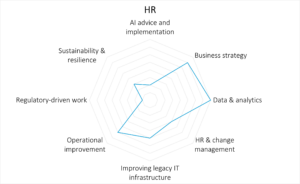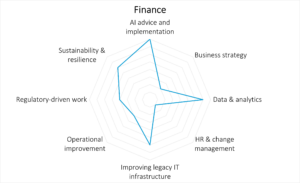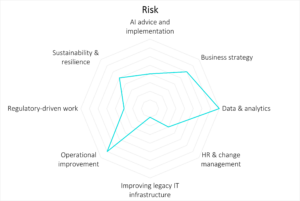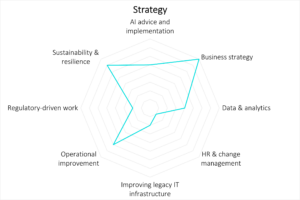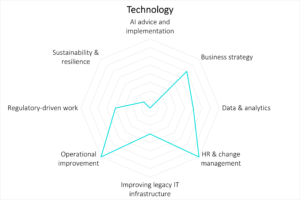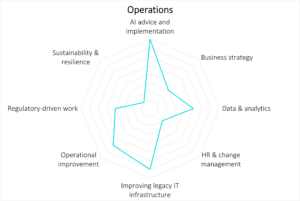Cross-functional buying: Is your newest market right under your nose?
Consulting firms are exploring new geographies and industries in an effort to find opportunities to grow. But your biggest and most easily addressable new markets could be at the functional level in client organisations you’re already working with.
Most consulting services are bought by two distinct groups in client organisations, by those at CxO level (e.g. CFOs) and by functional heads (e.g. heads of tax). During the pandemic, the level of sign-off needed to commission work shot stratospherically up the organisation, as clients carefully controlled what they were prepared to invest in. But since then, buying behaviour has reverted back to its historic norms, with functional heads now playing a more important role again. However, this probably doesn’t reflect a reduction in the level of scrutiny being applied to this expenditure; if anything, it points to a more tactical use of outside support and smaller project sizes.
Which level in your organisation typically buys consulting services?
But it would be a mistake to assume that this shift will simply take us back to where we were 10 years ago. What’s also changed is what these departmental heads are buying.
Consulting firms have assumed that a key difference between CxO and departmental buyers is that the former are more likely to buy large-scale, cross-functional work—transformation and sustainability, for example—because this type of work requires a different, organisation-wide approach if it’s to be effective. The fact that the increase in work being bought at the functional level in the last couple of years has coincided with a shift from all-encompassing transformation and sustainability projects to functional ones has reinforced this assumption. However, our research suggests that, while functional heads continue to be big buyers of function-specific consulting services, they are also buying a wide range of other services.
A head of HR is very likely to be buying consulting support around strategy, data & analytics, and operational improvement, in fact more so than they’re likely to buy HR consulting services. That a head of finance is very likely to buy data & analytics consulting perhaps isn’t surprising, but it also appears that they’re buying help around AI and technology. Operational heads have a similar profile, with a very marked spike of interest in AI-related consulting services. Ironically, a departmental IT director is most likely to buy consulting support around HR & change and operational improvement, while a head of risk is reluctant to buy regulatory compliance services, because they think they should be able to deliver this type of work in-house, but does want external support around data & analytics, and operational improvement.
By contrast, much of the consulting work strategy heads buy is around strategy, but they’re also more likely to buy work that’s explicitly focused on sustainability than other departmental heads (the latter are buying support in this area, but it’s embedded in other projects and so less obvious).
This has significant implications, especially for the way in which firms go-to-market. The most important growth opportunities at a functional level may not be in function-specific capabilities, but in other areas where local heads don’t have the relevant expertise. Thus, a head of HR wants help with data & analytics because it’s not their forte, just as an IT director may be a bigger buyer of HR & change consulting because they lack experience in this area. In other words, don’t just talk to functional heads about the stuff they know, talk to them about the things they don’t know, which could turn out to be the bigger market.
